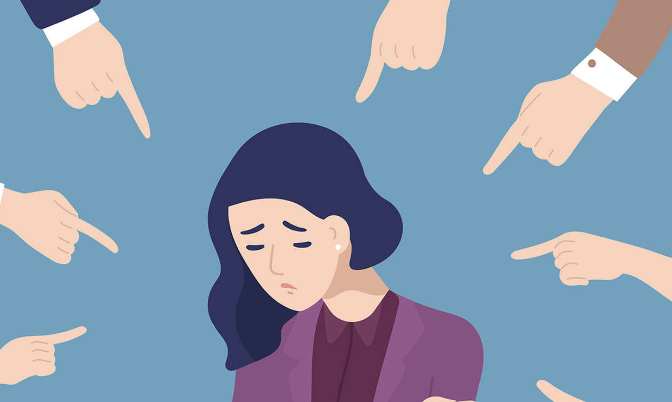In society, taking care of your mental health is a mantra for many, but many cannot identify how it looks in everyday life. The truth is that to see it is to ask a deeper question. For example, why does that little girl lie all the time? One would think that she’s probably a spoiled brat, or she picked up bad habits from her friends at school, but the challenge is to look beyond that. Pathological lying, or in other words, lying out of habit, could be a defence mechanism developed in response to a particular aspect of her life. It could be because she has strict parents who abuse her or scold her incessantly when she makes a mistake, which obviously does not favour her mental health. The core of this thinking process is understanding how deeply rooted mental health is in the problematic behaviours we see in people in day-to-day life.
Taking care of your mental health and managing a mental illness are two slightly different things. The former applies to anyone (including those who have mental illnesses), whereas the latter refers to a diagnosed neurological condition that usually requires medication to aid treatment. In both cases, however, they are also treated with therapy. Using medicine to treat mental illnesses can only be done by a psychiatrist due to their medical training. A psychologist or counsellor, on the other hand, can only administer talk therapy. Thus, for one who experiences mental illnesses, a combination of both types is used for treatment. However, those who experience mental health challenges classified as illnesses usually go for talk therapy.
“Stigma” is defined as a mark of disgrace associated with a particular circumstance, quality, or person. The social stigma surrounding therapy and having mental health challenges or illnesses are mainly caused by people’s non-understanding and lack of awareness of these different aspects. This is also the case for corporate organisations and schools. Additionally, there is also a lack of open conversations about it, which makes it difficult to normalise talking about mental health issues, which in turn causes people to be less aware of mental health issues in general.
Here are some common items that often need to be clarified:
- Mental illnesses are disorders diagnosed through set parameters (treatment usually requires a combination of medication and psychotherapy).
- Mental health refers to the psychological well-being and satisfactory adjustment to society and ordinary demands of life.
- Psychiatrists are qualified to assess both the mental and physical aspects of psychological problems.
- Psychologists focus extensively on psychotherapy and treating emotional patients with behavioural intervention.
Studies have shown that 1 in 7 Singapore residents have experienced mental health challenges in their lifetime, and more than 5 in 10 do not want to live or work with someone plagued by it. This is mainly due to people believing they are unpredictable or “could get better if they wanted to”. This is the stigma right there.
Stigma can also come from stereotyping, where people simplify and overgeneralise certain beliefs of entire groups of people that are often inaccurate and offensive.
Some examples of stereotyping:
- People experiencing depression — “lazy”.
- People who experience anxiety — “cowardly”.
- People who go to therapy — “crazy”.
- People who are diagnosed with mental illnesses — “violent and dangerous”.
Stigma towards mental illnesses
People who struggle with mental illnesses cannot truly say that it is their fault for not coping with it as they are medically diagnosed conditions. In the same way, you would not expect someone who is hospitalised with a broken leg to be able to walk right away without treatment. Some examples of these illnesses are Bipolar Disorder or Obsessive-Compulsive Disorder (OCD).
Stigma towards mental health
Just because one does not have a mental illness, it does not mean that their mental health is unimportant. The irony is that if one discriminates against those who face mental health challenges, it is natural for those who go through mental health challenges not to want to change. The fact is that these people may not have the support system that most do, or they struggle with many life challenges such as loss that puts them in a precarious state of mind. These are real problems that any average person will find difficult to deal with, and they deserve the right to be seen as an equal.
With proper treatment, it is possible for people who experience these difficulties in recovering and functioning as though they do not have it anymore. Going to therapy is the most common avenue for treatment. However, there is also a stigma surrounding it.
Stigma towards therapy
There is a stigma toward going for therapy and people who go to therapy, and they both are linked. When one goes for therapy, it is a declarative statement saying they have a real mental health challenge or illness. If people find out, they will experience stereotyping. This deters them from even taking on therapy. Additionally, when they choose to deal with it, these problems also feel much more real, and they may start to lower their self-efficacy. It can be challenging to deal with all these emotions that come with facing them, but that’s where a safe space with encouragement or mindfulness, or at least without discrimination, is needed. This can better motivate people to go to therapy.
That being said, therapy can also be for those who do not experience mental health challenges or illnesses. Therapy can also be for seeking out a different perspective or professional advise on personal issues or even simply seeking out a listening ear. So it can be for everyone. The real question is whether, as a society, we can remove the existing stigma surrounding this.
With more and more cases of suicide and self-harm, we as a society must do what we can to create a safe space for all to be in. In addition, we need to make a call for stronger mental health awareness as mental health cases are rising, regardless of what our opinion on these matters is.
Destroying the stigma associated with mental health/illnesses and therapy calls for proper communication. This starts with knowing the right words to use and being respectful towards people who face these challenges. By knowing the diagnostic terms, you will have less room for misunderstanding. One can also use the first-person language to separate the person from the issue. For example, you can say that someone has depression and avoid saying that someone is depressed. Another way to ensure this is to be the first responder to debunk myths or clarify terms. Sometimes, it is not people’s intention to say something insensitive or disrespectful.
By creating a safe space, more conversations about mental health will start to arise. In addition, more platforms will be available to educate or speak about certain mental health issues that are more rampant today. The crux of the matter is that people today need to educate themselves as mental health challenges arise.



